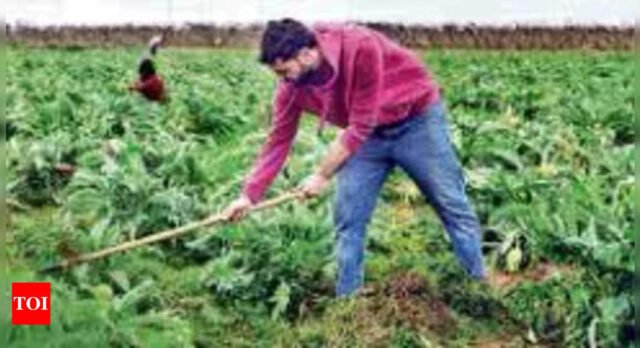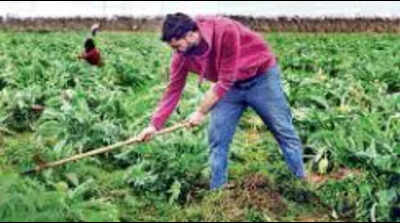Hyderabad: Agroforestry near the city outskirts has the potential to restore over 50,000 hectares of degraded land, create more than 25,000 jobs, and sequester 1.2 million tons of CO₂ annually by 2030, says a report by Grow Billion Trees, a volunteer group focused on large-scale tree planting. The report highlights Rangareddy, Medak, and Sangareddy as high-risk areas facing deforestation, monoculture practices, and severe groundwater depletion.
Agroforestry is a sustainable land use practice that combines agriculture and forestry. It involves growing trees and non-tree crops or animals on the same land and is designed to increase sustainability of agriculture and contributes to soil conservation and fertility.
The report emphasised how agroforestry can prevent soil erosion, enrich fertility, and recharge groundwater, offering a viable strategy to restore Telangana’s semi-arid lands. “Rising deforestation, soil erosion, and declining land productivity pose major challenges to agriculture and ecological stability. Against this backdrop, agroforestry is a sustainable solution that integrates trees with crops and livestock, promoting ecological restoration while improving rural livelihoods,” the report stated.
The report suggested various agroforestry models, such as horti-agroforestry systems, which incorporate fruit-bearing trees intercropped with vegetables, pulses, and legumes, ensuring food security and steady income for farmers. “Timber-based agroforestry integrates fast-growing species such as eucalyptus and teak with staple crops like millets, cotton, and pulses, providing long-term financial returns. Bamboo cultivation is gaining traction as a climate-resilient option that stabilises soil, prevents erosion, and offers economic opportunities in construction, crafts, and furniture-making. Silvo-pastoral systems, which combine fodder trees with livestock grazing areas, enhance livestock farming while ensuring environmental sustainability,” the report added.
The report highlighted that the impact on climate change mitigation is notable, with agroforestry systems sequestering 20-30 tons of CO₂ per hectare annually, thereby reducing Hyderabad’s carbon footprint. Moreover, these systems promote biodiversity by integrating native tree species that serve as habitats for pollinators, birds, and other wildlife. “By creating microclimates, agroforestry also helps mitigate the effects of droughts and extreme heat, ensuring crop resilience in the face of erratic weather patterns,” the report added.









